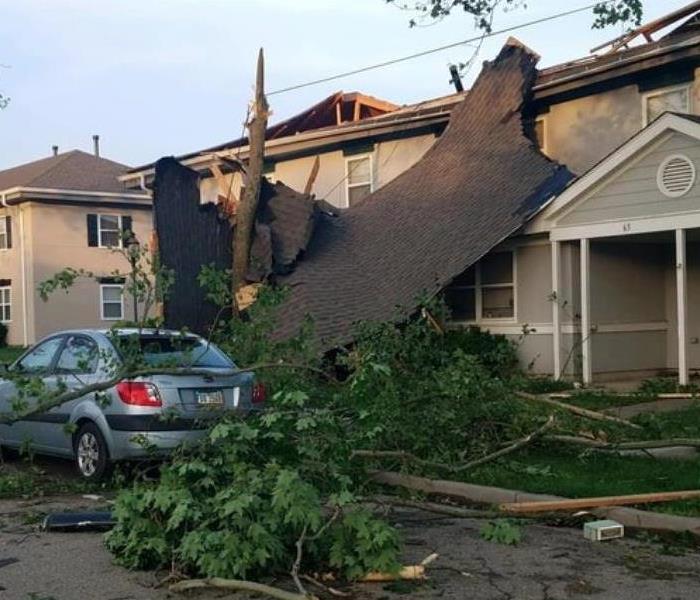To Mitigate Storm Effects, We Suggest Immediate Water Extraction!
3/2/2020 (Permalink)
Following flooding as a result of storm damage, many objects and parts of your home will be soaked to differing degrees. Some areas may be very lightly touched by moisture, and will, as a result, dry out quickly. Others, however, may be inundated and soaked through by floodwaters, including porous materials such as carpeting and fabrics. Aside from the sheer volume of water, some other factors will also significantly affect the rate at which your home dries out.
Water Extraction
The most important part of the drying process for storm damage in Beavercreek is bulk water removal. Our drying technology, while thorough and adaptable, is by nature capable of the removal of far less water than a traditional pumping system. For example, our truck-mounted water extractors can move up to 36,000 gallons per day, but our drying systems are often limited to around 30 gallons daily under optimal conditions. We prioritize getting service crews on-scene within hours of an initial call, so to be sure to keep drying times as low as possible.
Air Movement
We use high-powered air movers to create strong currents of air in a drying room. These capture water droplets and vapor from all surfaces and are then coupled with thermal or chemical dehumidifiers to take the water back out of the air and into a holding tank or piped directly to the exterior of the structure.
Temperature
Temperature profoundly affects the rate at which water evaporates, and thus the drying rate of your home. The ideal drying temperature is typically anywhere from 70-90 degrees Fahrenheit, as at any lower, our air movers will not be able to pick up much moisture. Any higher and the air becomes too humid for optimal results.
Relative Humidity--RH
Finally, the most important factor is the relative humidity. Many of our tools and even the factors described above are related to and designed to accommodate moisture. One device we use to measure this important component of drying is a thermal hygrometer. Humidity must be kept at a relatively ordinary level, so as to encourage fast evaporation and removal but also to avoid further damage to the room.
SERVPRO of East Dayton/ Beavercreek carries advanced equipment and specialized techniques to help dry out your home as fast as possible following a storm. If your home has experienced storm damage, call us at (937)-228-3433



 24/7 Emergency Service
24/7 Emergency Service